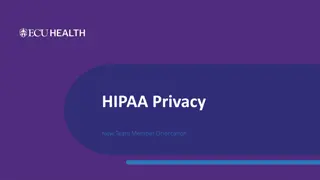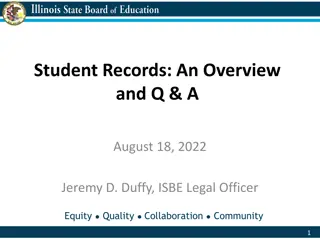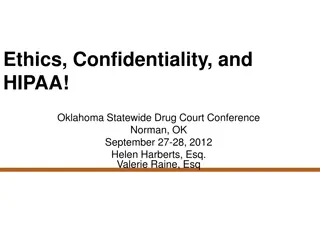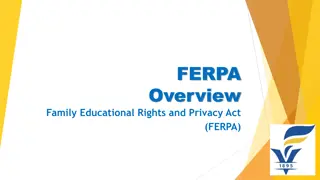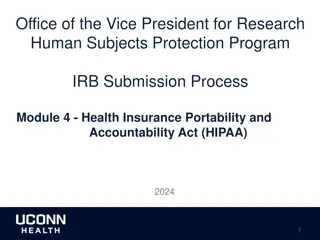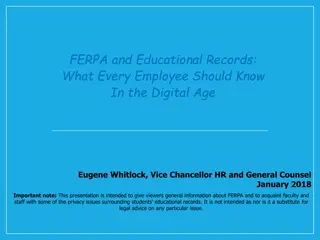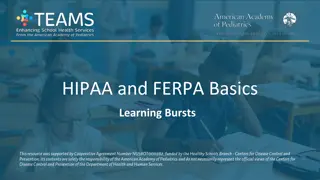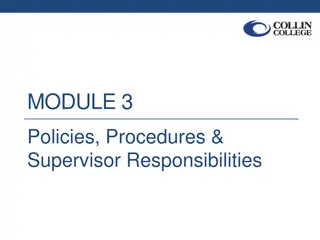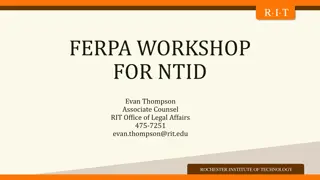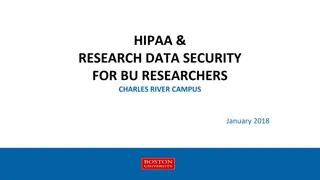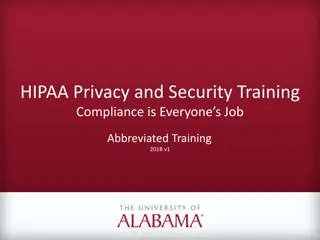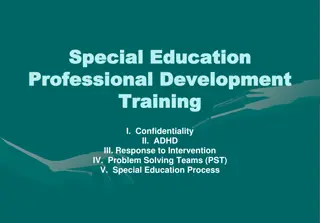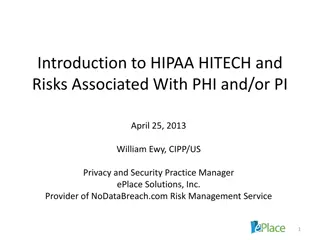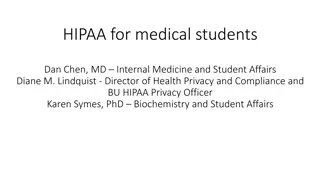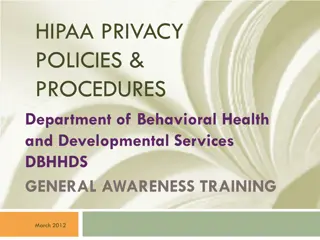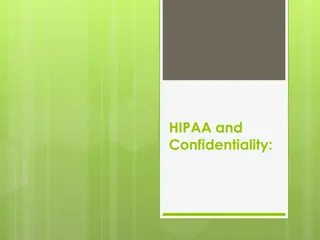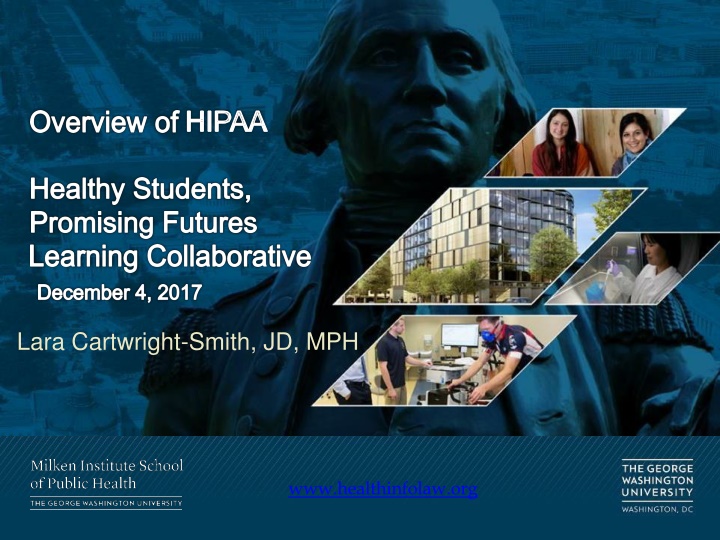
Differences Between FERPA and HIPAA Privacy Rules
Learn about the key distinctions between FERPA and HIPAA privacy rules regarding the protection of health and education records in schools. Discover which regulations apply, permitted disclosures, and compliance requirements.
Download Presentation

Please find below an Image/Link to download the presentation.
The content on the website is provided AS IS for your information and personal use only. It may not be sold, licensed, or shared on other websites without obtaining consent from the author. If you encounter any issues during the download, it is possible that the publisher has removed the file from their server.
You are allowed to download the files provided on this website for personal or commercial use, subject to the condition that they are used lawfully. All files are the property of their respective owners.
The content on the website is provided AS IS for your information and personal use only. It may not be sold, licensed, or shared on other websites without obtaining consent from the author.
E N D
Presentation Transcript
Lara Cartwright-Smith, JD, MPH www.healthinfolaw.org
HIPAA Privacy Rule Basics HIPAA Privacy Rule Applies to records held byCovered Entities (CEs) mainly health care providers and insurers/plans) Business Associates (BAs) who work on behalf of CEs and use or maintain PHI Protected Health Information (PHI) individually identifiable health information held or transmitted by CE or BA Includes a limited data set (LDS) Partially de-identified by excluding 18 identifiers, such as name, address, SSN. Health information in records that are governed by FERPA; De-identified information. In general, CEs may not disclose PHI without written authorization by the person who is the subject of the information. For minors, state law re: parental consent applies. Treatment, Payment, Healthcare Operations (TPO); Required by state law (inc. health and safety); For research, public health practice, and quality improvement, but only LDS (partially de-identified). Minimum necessary standard applies in most cases (except treatment). To individual or their designated recipient. Information covered Not covered Consent for disclosures Permissive disclosures Required disclosures www.healthinfolaw.org
Where FERPA applies, HIPAA doesnt Under HIPAA, protected health information (PHI) does not include: Employment or education records held by a CE; Information in records subject to FERPA; or De-identified information. Health records maintained a school that are education records or treatmentrecords of eligible students under FERPA are excluded from the definition of PHI. Therefore, neither the HIPAA Privacy Rule nor the HIPAA Security Rule applies to schools where the only records kept meet the definition of education or treatment records under FERPA. www.healthinfolaw.org
Schools typically will only have to comply with FERPA, not HIPAA Student health records maintained by a person or entity acting on behalf of a school subject to FERPA are education records, not PHI. If FERPA applies, its stricter standards govern, even if HIPAA would allow disclosure. Schools may receive information from HIPAA-covered entities, such as a provider or health plan. Once the information is added to a student s school record, it s covered by FERPA, not HIPAA. Receiving such information does not make the school a business associate under HIPAA. www.healthinfolaw.org
Who must comply? Protected information Permitted disclosures1 FERPA HIPAA

